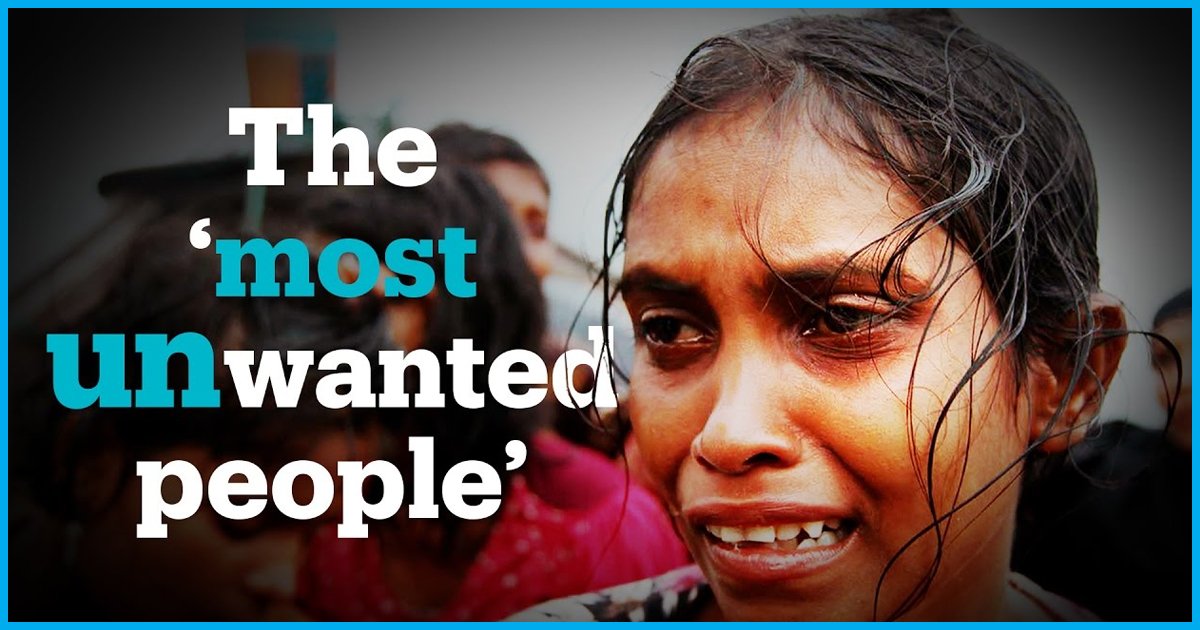
What Does The Indian Law & Constitution Say On Allowing Rohingya Immigrants In The Country?
22 Sep 2017 7:54 AM GMT
Editor : Pooja Chaudhuri
The only fiction I enjoy is in books and movies.
Earlier this week the Government of India told the Supreme Court that about 40,000 Rohingya refugees in the country are a “threat to national security” and would be deported. The decision came as a blow to the hopes of the most persecuted minority in the World who are fleeing violence in the Buddhist majority Myanmar’s northwestern Rakhine state.
The future of the 40,000 immigrants depends on the petition filed by the legal fraternity, including senior lawyer Prashant Bhushan, which is to be heard by the SC on October 3.
Former external affairs minister Salman Khurshid said that India needs a well-thought-out law to deal with refugees and being a senior member of the United Nations, the country should also become a signatory to the International convention.
What does the Indian law say on refugees?
The Citizenship Act, 1955 regulates who may acquire Indian citizenship and on what grounds. A person may become an Indian citizen if they are born in India or have Indian parentage or have resided in the country over a period of time, etc.
An illegal immigrant is a person without a valid passport or other travel documents, or with valid passport or other travel documents, but stays beyond the permitted time period. They can be deported under The Passport (Entry into India) Act, 1920 and The Foreigners Act, 1946.
The citizenship bill has been tweaked five times previously due to large-scale movement of people during partition mainly on religious contours and the recurrent influx of immigrants and refugees fleeing instability in their home nation.
In 2015 and 2016, the government issued two notifications exempting (no imprisonment or deportation without valid documents) certain groups of illegal immigrants from provisions of the 1920 and the 1946 Acts. These groups are Hindus, Sikhs, Buddhists, Jains, Parsis and Christians from three countries: Afghanistan, Bangladesh, and Pakistan.
While the government made it easier for people of the above faiths from the three nations to reside in India as legal citizens, it was biased against certain religions – Shias in Pakistan, atheists in Bangladesh, Buddhists in China and Rohingya (both Muslim and Hindu) in Myanmar.
The Citizenship (Amendment) Bill, 2016 discriminates against of the groups mentioned even as Article 14 of the Indian Constitution states: “The State shall not deny to any person equality before the law or the equal protection of the laws within the territory of India Prohibition of discrimination on grounds of religion, race, caste, sex or place of birth.”
The amendment maybe in violation of the Constitution if the apex court so interprets.
Rohingya face humanitarian crisis and 1,25,000 of them have fled Myanmar as violence in Rakhine state has escalated since August 25. They seek asylum in neighbouring states and the Indian refugee law not only makes it nearly impossible for them to enter the nation but the already existing 40,000 also face the threat of being deported.
Even under the Overseas Citizen of India (OCI) scheme, Rohingya are not eligible to be cardholders and enjoy benefits such as the right to travel, work, and study in India.
India is not signatory to the 1951 United Nations Refugee Convention
India has a large refugee population. The former Secretary-General of the UN had said that India’s treatment of refugees is an “example for other countries“.
However, India has not signed the UN Refugee Convention; based on this, the Ministry of Home Affairs (MHA) on Monday, September 18 said that India does not need to adhere to the principle of non-refoulement.
Non-refoulement is a fundamental principle of international law which forbids a country receiving asylum seekers from returning them to a country in which they would be in likely danger of persecution based on “race, religion, nationality, membership of a particular social group or political opinion”.
In its affidavit, the MHA also added that though India was a signatory to the International Covenant on Civil and Political Rights, its scope did not extend to non-refoulement.
However, the government’s current stand is in contradiction to the statements it made in July this year at the United Nations High Commissioner for Refugees.
“We support the concept of burden sharing, including relocation of refugees on case to case basis, that too with the consent of the refugees. While doing so, we need to be cautious not to open the path for re-defining the Refugee Convention and its protocol, and in no case diluting the principle of ‘non-refoulement’,” Anil Rai, Counsellor (Humanitarian Affairs), had said to the UN.
India’s endorsement of the principle of non-refoulement at International meetings was not a one-off instance. As reported by The Wire, India has repeatedly asserted that it has “always” abided by this principle despite not being a signatory to the Refugee Convention.
As the Centre remains adamant on deporting the existing 40,000 Rohingya refugees, the process will not be easy as the Myanmar government is consistently refusing repatriation.
Also read:
- “If Bangladesh Can Feed 160M, We Can Also Feed 7,00,000”: PM Sheikh Hasina On Rohingya Refugee Crisis
- Sikh Volunteers From India Travel To Bangladesh-Myanmar Border To Help The Rohingya Refugees
- 1,25,000 Rohingyas Flee Myanmar As Violence Escalates: All You Need To Know
- Govt. Mulling Over The Idea To Make It Easier For Refugees Of Certain Religions To Become Citizens
- Know About The Rohingyas: “One Of The Most Persecuted Minorities In The World”
 All section
All section













